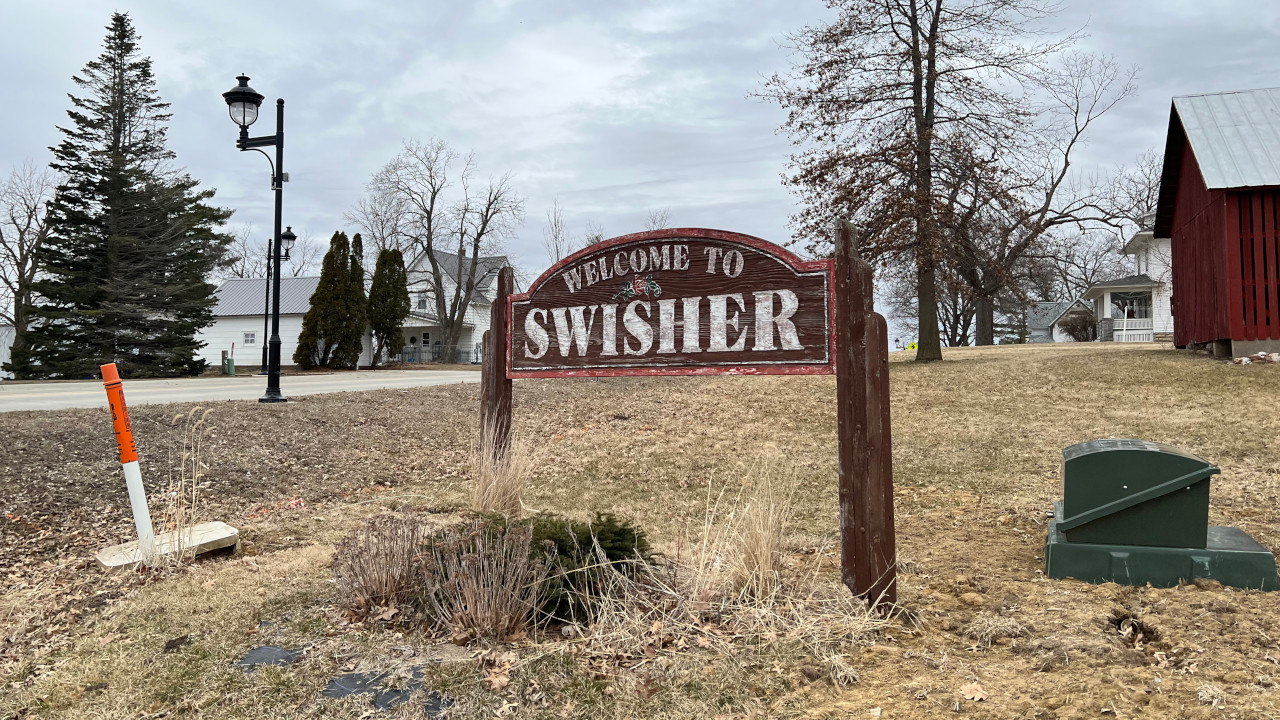
Swisher officials are assessing their next steps after a measure to develop a municipal water system for the city was soundly rejected by voters Tuesday, March 7. According to official election results from the Johnson County Auditor’s Office, the $26.2 million measure was defeated by a margin of 84.2% to 15.8%, with 401 Swisher residents […]
Already a subscriber? Log in
Want to Read More?
Get immediate, unlimited access to all subscriber content and much more.
Learn more in our subscriber FAQ.
- Unparalleled business coverage of the Iowa City / Cedar Rapids corridor.
- Immediate access to subscriber-only content on our website.
- 26 issues per year delivered digitally, in print or both.
- Support locally owned and operated journalism.
Do you want to read and share this article without a paywall?
Click here to purchase a paywall bypass linkSwisher officials are assessing their next steps after a measure to develop a municipal water system for the city was soundly rejected by voters Tuesday, March 7.
According to official election results from the Johnson County Auditor’s Office, the $26.2 million measure was defeated by a margin of 84.2% to 15.8%, with 401 Swisher residents voting against the proposal and 75 voting in favor. Turnout was reported at 72.3%.
After the vote, Swisher mayor Chris Taylor said he wasn’t completely surprised by the result.
“We were asking people to make a personal sacrifice for the community for a benefit that they might not see for many years, and to do so with limited information, because we can't predict the future,” Mr. Taylor said. “So that was always going to be a hard sell. I am surprised by the margin, but that's why we put these things to a vote.”
In proposing the measure, city officials said a municipal water system would bring crucial economic development benefits to the Johnson County community of just over 900 residents – one of just two Johnson County towns relying primarily on private wells for its water needs. Officials also said the measure was designed to address potential water safety issues and provide a hydrant-based water supply for the city’s fire department.
Swisher residents last voted on a municipal water system in 1999, with more than 70% of residents voting against the proposal at that time. But with the city’s population expected to increase more than 120% over the next 30 years, Mr. Taylor said officials felt the time was right to revisit the concept.
“I think economic development was a big driver in trying to take a second look at this, seeing what it is costing the city currently to not have a municipal water system,” Mr. Taylor said prior to Tuesday’s vote. “We can put forth a lot of hypothetical situations, but we have actually had conversations with developers and people who want to bring certain businesses into town who ultimately were not able to do so because we couldn’t provide them with a safe municipal water system.”
Mr. Taylor said he felt that other than the question of cost, “clearly, a majority of people in town want to address some of their drinking water issues individually, rather than as a community.”
Under state law, Swisher must wait four years before bringing the issue back before voters. And while Mr. Taylor said it’s unclear how city leaders will proceed, the groundwork for a future municipal water system is already being laid.
“We already have certain things in place, and have for some time, that are designed to prepare the city one day for a water system,” he said. “We require developers to install water infrastructure already. There are still some things that we can do to continue moving the city forward as it develops toward an eventual water system. Whether that happens in the next 10 years or the next 50 years, we'll try to put the city in the best position we can.”
While admitting the overwhelming vote was disappointing, Mr. Taylor said it provided a clear message for city leaders.
“I think the city will be doing some assessment of how it made this proposal,” he said. “Certainly there are things that we could have done differently. But when a vote is this definitive, it shows that there's really nothing the city could have done that would have changed the final result. We might have closed the margin a little bit. But the people were very clear on what they expect the city council to do, at least in the near term. And there's not a lot we could have done, that would have changed 200 minds. There’s always new challenges.”